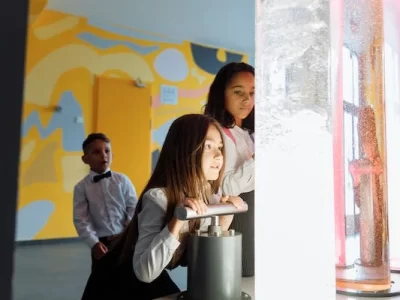The Invaluable Role of Trips and Educational Excursions
The Invaluable Role of Trips and Educational Excursions
The essence of education stretches far beyond the confines of the conventional classroom. While classrooms serve as the nucleus of learning, delving into the realms of practical, hands-on experiences often offer more comprehensive insight into a subject. In this context, field trips and educational visits emerge as potent tools to augment learning and engagement, particularly for subjects like history and science. By extending education beyond textbooks and lectures, these excursions offer a profound, multi-dimensional impact on students, transforming learning into an active, immersive, and enriching experience.
Understanding the Role of Field Trips in History Education
The study of history is essentially an exploration of the past. It unravels the tapestry of bygone civilizations, cultures, and seminal events that have collectively shaped the contours of our present world. Traditional pedagogical methods, such as learning from textbooks or attending lectures, while essential, often tend to make history a passive assimilation of dates, events, and facts. However, the true essence of history transcends this mechanical absorption. It calls for an intimate connection with the past and an understanding of the progression of time. This is precisely where educational excursions exhibit their transformative role.
Historical field trips to museums, monuments, battlefields, archaeological sites, or heritage sites breathe life into the pages of history, making it tangible, relatable, and vividly real. These trips serve as a conduit connecting students to historical events on a personal and emotional level. The experience of seeing historical artifacts in a museum, treading on the grounds of a historical monument, or exploring the remnants of an ancient civilization brings history to life in ways that classroom teaching cannot.
These excursions enable students to envision the past vividly, comprehend the cultural and historical context, and appreciate the relevance of events that have shaped the society we live in today. Moreover, these experiences foster a deeper engagement with the subject, promoting analytical and critical thinking, and inspiring curiosity and a lifelong interest in history.

The Transformative Value of Educational Excursions in Science Education
The realm of science, much like history, is intrinsically tied to exploration and the quest to understand the natural world around us. Field trips and excursions, therefore, hold equal if not more transformative potential in the context of science education. A well-planned visit to science centers, botanical gardens, zoos, planetariums, or local ecosystems for fieldwork can stimulate curiosity, enable hands-on learning experiences, and provide unparalleled insights into the practical applications of scientific theories and concepts.
Such excursions offer students the unique opportunity to observe scientific phenomena in real time, conduct experiments in natural settings, and apply theoretical knowledge within a practical context. Engaging with the world beyond the textbook encourages them to formulate hypotheses, make observations, draw inferences, and engage in problem-solving, all of which are the key components of the scientific method. The excitement of discovery, the thrill of understanding complex phenomena, and the satisfaction of problem-solving can spark curiosity, ignite a passion for scientific exploration, and may inspire students toward potential future careers in various scientific fields.

The Inherent Value of Interdisciplinary Trips
One of the significant advantages of educational excursions is their inherent propensity towards an interdisciplinary approach. This method is particularly beneficial when it comes to subjects like history and science, where the intersection of knowledge can provide a rich, holistic understanding of our world.
For instance, a visit to an archaeological site can simultaneously offer insights into historical timelines, while also elucidating the scientific methods used in excavation, artifact preservation, and chronological dating techniques. Similarly, trips to natural reserves, national parks, or wildlife sanctuaries can merge elements of ecological history along with biological and environmental science, illuminating the interplay of nature and human activity over time. This integrative approach not only enriches learning but also fosters connections between different areas of knowledge, equipping students with a well-rounded and comprehensive worldview.

The impact of field trips and educational excursions in enhancing history and science education is both profound and multifaceted. These field experiences transform learning from passive reception of information to active, dynamic, and immersive exploration. By providing students with first-hand experiences, they allow the practical application of classroom concepts, enrich conceptual understanding, and deepen their appreciation for these subjects.
From a broader perspective, these experiential learning experiences foster essential life skills such as critical thinking, problem-solving, and observational skills in the students. They encourage students to become active learners and inquisitive explorers in the vast landscape of knowledge, thus nurturing the next generation of historians, scientists, and enlightened citizens. Therefore, it becomes imperative for educational institutions to recognize the value of these excursions and integrate them into their curriculums, thereby making education a journey of exploration, discovery, and lifelong learning.

Related Posts
Resilience and Recovery in Student Life
Search
Categories
Latest Posts
Popular Tags


